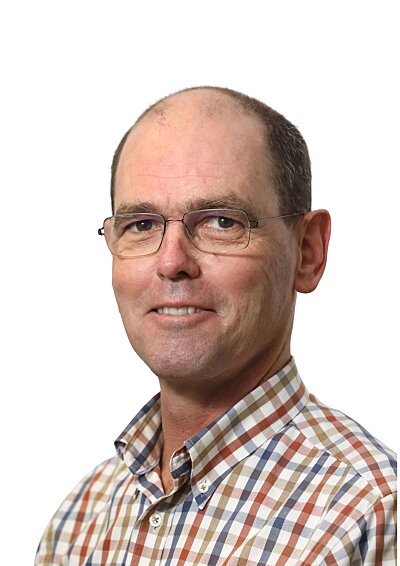15 – 26 July 2024, weekdays
 IL: L712
IL: L712
KU Leuven: B-KUL-A0713A
4 study points
Taught by: Barry Craig
Aims:
The course considers the two parts of the Eucharist; the Liturgy of the Word and the Liturgy of the Eucharist and is designed to lead the reader through the major periods of cultural and theological change in the Church particularly in the West up to the present. We wish clearly to indicate the changes in liturgical forms throughout history and to present the theological understandings of the Eucharist in the different periods. In this way it is hoped that readers will understand both what the Church teaches and the reasons given for these teachings.
Hours: three hours (including a break). Hours yet to be determined.
The course anticipates the student will spend 60 hours in personal reading and study.
Location: Benedictine Study and Arts Centre (at Ealing Abbey)
74 Castlebar Road Ealing London, W5 2DD, UK
Telephone: +44 (0)20 8194 2320
For further details or to register contact the Centre at this linked E-mail address.
Location on Google Maps is found here.
KU Leuven awards 4 study points to this graduate course.
The Institutum Liturgicum requires this course for its award in Liturgical Studies.
Previous knowledge
It is recommended that participants be familiar with the history of western civilization in the Christian period and, in particular, with the various liturgical celebrations of the Catholic Church. Preparedness for this course is assesed by a Latin entrance exam equivalent to Intermediate Latin (L511), which requires a familiarity with the formation and usages of the subjunctive and one’s preparedness to read source texts in the original language.
Content
After a general introduction, the students will examine and discuss the history of the Eucharist in the Catholic tradition, and contain the following elements:
i. In class reading of original texts of the Eucharist from liturgical sources.
ii. In class presentation of the development of the Liturgy of the Word in the celebration of the Eucharist.
iii. In class presentation of the development of the Eucharistic Prayers in the celebration of the Eucharist.
iv. Private reflection and notetaking, reviewed in class.
Course Material
♦ The Eucharist (Handbook for Liturgical Studies 3), ed. A.J. Chupungco, Liturgical Press (Pueblo Books), Collegeville MN 1999, articles by E. Mazza, M. Metzger, M. Witczak, A. Nocent, 9-60, 103-131, 133-175, 177-188.
♦ JASPER, R.C.D., – G.J. CUMING, Prayers of the Eucharist Early and Reformed, Liturgical Press, Collegeville MN 1975.
♦ MAZZA, E., The Celebration of the Eucharist. The Origin of the Rite and Development of its Interpretation, The Liturgical Press, Collegeville MN 1999.
♦ Prex Eucharistica, vol. 1, ed. A. Hänggi – I. Pahl, Éditions Universitaires, Fribourg 1968.
♦ SPINKS, B., Do This in Remembrance of Me: The Eucharist from the Early Church to the Present Day, SCM Press, London 2013.
Description of learning activities
♦ In class reading and understanding of original texts of the Eucharist;
♦ in class presentation of the developments in the theology of the Eucharist;
♦ in class discussion of classes and assigned reflections and notes taken.
♦ private reading, reflection and writing
Evaluation description
Examination type: oral (100%); with written preparation.
When: the oral exam is conducted at the end of the final session; written preparation comprises notes handed in at the beginning of the oral exam and kept on file for one year.
Explanation: Students choose one period of the history of the Eucharist for more detailed study and prepare the rest of the history of the Eucharist in its cultural context for a more synthetic and reflective response. The full mark is based on the student’s oral presentation of their study and their understanding presented to the instructor and their discussion. Students may bring their prepared written notes to this final discussion. The function of written preparation is to help the student prepare a satisfactory answer and to support the student in his or her oral presentation and discussion. Copies of the liturgical books discussed during the course will be provided for students during the exam.
Criteria for evaluation: There are two questions in the oral exam. The first question asks for a descriptive-analytical response concerning the characteristics of one of the periods of the history of the Eucharist examined, selected by the student. The second question asks for a synthetic-applied response covering the major issues concerning liturgical renewal since the Second Vatican Council. Discussion seeks to help the student provide a more clear and comprehensive response.
Second opportunity to sit the exam: Because this is an intensive summer course, the opportunity for a second exam is by appointment and depends upon the availability of the instructor.
Note: Students must be over 18 years of age.
This course has been designed to be taken alone or in conjunction with another course of this block.
If students enrol in two concurrent courses, they may wish to prepare for the intensive schedule by reading suggested texts before the course begins.
The instructor will arrange with the students to be available regularly for some time at the Institute and is also available by appointment.
Students and the public are invited to attend the annual St Bede Lecture, to be held at Ealing Abbey on Saturday afternoon 6 July at 2.30 PM.
Accommodation:
Non residential day students are welcome.
Limited accommodation is available through Ealing Abbey house for guests or other religious houses or nearby.
Additional information from KU Leuven course web-site
Academic year: 2024-2025
Study points: 4
Language: English
Difficulty: Graduate-Intermediate
Duration: 26.0 hours
Periodicity: Taught biennially in Block II
POC: POC Theology and Religious Studies
This course is included in
Research Master of Advanced Studies in Theology and Religion (120 ECTS)
Master of Theology and Religious Studies Study Abroad Programme in European Culture and Society (PECS).
A link to the course descriptor at KU Leuven is not yet available, but the course is based on one previously offered (link here).
page updated 28 September 2023